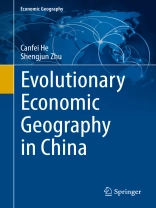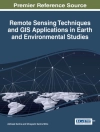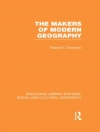The book provides the first detailed account of the complex geographical dynamics restructuring China’s manufacturing industries from the evolutionary economic geography perspective. These geographical and industrial shifts have enormous implications in and beyond China for what is possible in the post-crisis global economy. The book demonstrates that the interface between evolutionary economic geography approaches and other approaches (e.g. global value chain, global production network, institutional economic geography) could be a fertile area for further consideration.
The two main audiences that this book appeals to are economic geography and regional science. The topics covered in the book are also relevant to development studies, economics, economic sociology and international studies, offering academics, international researchers, post-graduate and advanced undergraduate students in these fields an accessible, grounded, yet theoretically sophisticated account of the evolutionary economic geography in China and its interaction with firm performance and regional economic development. The book is also attractive to national policy makers, since it engages directly with economic and industrial policy issues, such as industrial competitiveness, regional and national development, industrial and employment restructuring, and trade regulation.
Зміст
Introduction.- How Has Production Space Evolved in China?.- How Does Regional Industrial Structure Evolve in China?.- What Matters for Regional Industrial Dynamics in China?.- What Facilitates New Firm Formation in China?.- Does Creative Destruction Work for Chinese Regions?.- What Causes Firm Failure in China?.- What Sustains Large Firms in China?.- How Do Agglomeration Economies Contribute to Firm Survival in China?.- How Does Geese Fly Domestically? Firm Demography and Spatial Restructuring in China’s Apparel Industry.- How Do Environmental Regulations Affect Industrial Dynamics in China?.- How to Jump Further? Path Dependence and Path Breaking in An Uneven Industry Space.- What Drives Evolution of Export Product Space in China?.- How Do Firm Dynamics Affect Regional Inequality of Productivity in China?.- Summary and Conclusion.
Про автора
Dr. Canfei He is a Cheung Kong professor and the Dean of the College of Urban and Environmental Sciences at Peking University (PKU). Professor He earned his Ph.D. degree in geography from Arizona State University in 2001. He was a visiting assistant professor at the University of Memphis during 2001-2003. Dr. He is the deputy director of the Peking University–Lincoln Institute Center for Urban Development and Land Policy. He is the associate editor of two Chinese journals including World Regional Geography and Geographical Research and is on the editorial board of several Chinese and international journals, including Applied Geography, The Geographical Journal, Eurasian Geography and Economics, Growth and Change, Area Development and Policy and Asia Geographer. He was a section editor in charge of Industrial Geography for the Wiley-AAG International Encyclopedia of Geography. Dr. He’s research interests include industrial geography, urban and regional development in China. Dr. He has authored or co-authored 15 books and published more than 70 papers in international journals. He is also the lead guest editor of several special issues for Growth and Change (2016), Geojournal(2016), and Small Business Economics (2017). He was granted the Outstanding Young Scientist Award by National Natural Science Foundation of China in 2014 and was entitled the Cheung Kong professorship in 2016 by the Ministry of Education in China. He was listed by Elsevier as one of the most cited researchers in mainland China (social sciences), for three consecutive years (2015-2017).
Shengjun Zhu joins the College of Urban and Environmental Sciences at Peking University (China) from Swansea University (UK), where he worked as a lecturer for two years. He received a Ph.D. in Geography at University of North Carolina at Chapel Hill (USA). Before coming to the University of North Carolina at Chapel Hill, he earned a Bachelor and Master Degree in Geography and a Bachelor Degree in Economics from Peking University, China.
His major interests lie in globalization; regional development; global production networks; global value chains; industrial relocation and delocalization; industrial, social and environmental upgrading/downgrading. With his inter-disciplinary research and education background, Dr. Zhu is able to thoroughly investigate research questions and offer unique insights and perspectives. His papers have been published in some high-quality academic journals, including Journal of Economic Geography, Urban Studies, Journal of Contemporary Asia, Geoforum, Eurasian Geography and Economics, Geojournal and Post-communist Economies. At the same time, Dr. Zhu has accumulated abundant industrial experience from various consulting projects.












